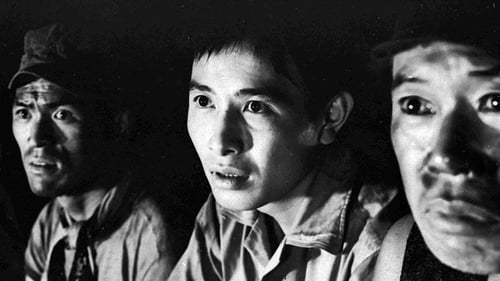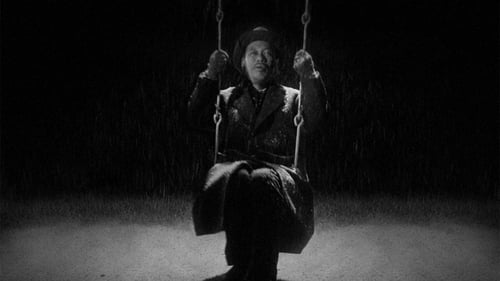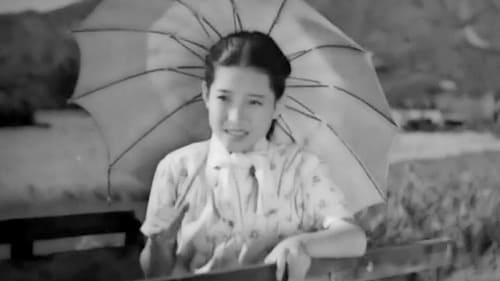Yôyô Kojima
Рождение : 1891-12-16, Tokyo, Japan

A sad love story between young Umihiko Kojima and a beautiful girl named Yukiko Shino.

Kaichi Yui
Хозяину маленькой шахты приходится экономить на всем, хотя это угроза для безопасности рабочих. Непогода провоцирует аварию, шахту затапливает вода, и пятеро шахтеров оказываются замурованными под землей. Спасательная операция буксует на месте, попытки откачать воду к успеху не приводят. Шахтеры, инженеры, члены семей потерпевших – все теряют самообладание. Неразбериха нарастает, и шансы на спасение тают на глазах.

One of the earliest Japanese cop films following a mysterious killing on the last train to Mitaka, Tokyo.

Worker in Sewage Section
Старик, узнавший о скорой кончине, узнавший о равнодушии близких, узнавший, что жизнь прожита зря, решает, что детская площадка на месте зловонного пустыря — это то, что он оставит этому миру после себя. Слабый, умирающий старик, покорный, бессловесный чиновник стал борцом. То упорно настаивая, требуя, то умоляя и унижаясь он проходит все круги бюрократического ада. Он собирает подписи, резолюции, печати. Он не уступает ни перед гневом начальства, ни перед насмешками сослуживцев, ни перед угрозами бандитов.

Jidai-geki about the life of Yasubei Nakayama, a famous ronin who did participate in the revenge against Lord Kira Yoshinaka as detailed in Japan's famous epic Chushingura

A romantic melodrama about the shifting relationship between Ryosuke and Miki as their precarious employment and social circumstances shift around them.

Head teacher
A film by Kiyoshi Saeki

Три ироничные и трогательные истории о первой любви. Она приходит так неожиданно, и наполняет юные души нежностью, чистотой и безумством. Известный писатель Исинака-сэнсэй наблюдает за поступками молодых с высоты своего возраста и жизненного опыта. В их годы он тоже натворил немало глупостей.

A film dealing with the comings and goings of individuals in the immediate postwar period.

1928 год. До начала войны ещё далеко, но из-за финансового краха компании герой лишается выгодной работы. Как теперь ему содержать жену и сына-школьника? В такой ситуации каждый может впасть в депрессию. Причин беспокоиться у героя предостаточно, к тому же его жена неважно себя чувствует. Где взять маленькому человеку силы, чтобы преодолеть все трудности?

Set in Qingdao, China, a Japanese company locates an office there and begins work and cooperation with a local Chinese company for business. Many Japanese engineers also move to China, with their families, for the company in order to construct a canal. There are young Chinese resisting the Japanese in this area.

Tangonokami Shizawa
This epic depicts the battle between Uesugi Kenshin and Takeda Shingen. The focus of the story is the struggle by the unit leader in charge of the main supply wagons and the supply troops to transport materiel to the Uesugi army. To this are added episodes involving an itinerant woman.

A Japanese army engineer (Hasegawa) on the mainland must put his personal feelings for a beautiful Chinese woman (Ri) aside if he is to succeed at building a highway through the "bandit"- (aka anti-Japanese militia-) infested hinterlands.

Jidaigeki from 1940

Enoken's anachronistic take on the beloved (and already very funny) Edo-period novel "Shank's Mare," aka Tōkaidōchū Hizakurige, in which Yaji and Kita, two plebeian nobodies, have all sorts of strange and colorful encounters on the long road from Edo to Kyoto.

Song of the White Orchid was a co-production of Toho and Mantetsu, the railway that served the colonial region of Manchuria, and the first film in the Kazuo Hasegawa/Shirley Yamaguchi (Ri Koran) “Continental Trilogy.” Handsome Hasegawa (representing Japan) runs up against an impertinent Yamaguchi (representing the continent); not surprisingly, in the course of the film the woman comes around and realizes the benevolent intentions of the Japanese. In Song of the White Orchid Yamaguchi leaves Hasegawa, who plays an expatriate working for the railway, because of a misunderstanding. She joins a communist guerilla group plotting to blow up the Manchurian railway. Learning of the subterfuge that led to the misunderstanding, she renews her faith in Hasegawa—and by extension Japan—and tries to undermine the plot.

Hide-chan (Hideko Takamine) and her family are on a trip to Tokyo. While visiting a fairground, a pickpocket (Kamatari Furukawa) steals the father's wallet. While everyone is trying to hunt down the thief, Hide-chan decides to make the most of it and enjoy her stay, while the thief and his main pursuer (Akira Kishii) play hide-and-seek among the funfair's spectacles and freakshows

The prewar film Haha no kyoku (Mother's Melody, 1937) is known for its place in Japanese film history as one of the top three melodramas as well as for its authorship: Yamamoto Satsuo is an auteur not usually associated with filming melodramas. Yamamoto made the film right after he moved, along with his mentor Naruse Mikio, to the Toho film company. A number of subsequent postwar mother's films adopted some of its essences, making it a genre-defining moment in Japanese cinema. This great melodrama is atypical of Yamamoto's output, much of which deals with political corruption and inequities within social institutions and offers a strong anti-establishment appeal.

Story of a bandit king.

Hikoroku Laughs a lot

Schoolmaster
When Kaoru's sister-in-law Miyoko arrives at the family home, tender feelings start to grow between the two. However, the initial happiness that Kaoru finds in the company of her beautiful sister-in-law is frustrated by her brother Mitsuo, Miyoko's husband, who intervenes in their budding passion. Full of unspoken words, deeply suggestive mise-en-scène, and forbidden glances, Fukujuso is a compelling melodrama that surprises us with its potent homoeroticism, especially considering its year of production.

Sahei Sakamoto
Юная Сумико Накамура отправляется в одинокое путешествие, когда отец решает, что его дочери лучше жить с его братом и её дядей. Поездка начинается в поезде, но далее она идёт пешком и на телеге, когда незнакомец подвозит её. Увы, но приехав к своему дяде девушка не встречает ни радости, ни сострадания, ни доброты, так как в этом доме она нежданная и ненужная. Вскоре её продают в рабство. Мир юной девушки и её жизнь движутся по спирали вниз, когда она начинает понимать, что не может полагаться на семью, людей или бога и ожидать от них помощи.















